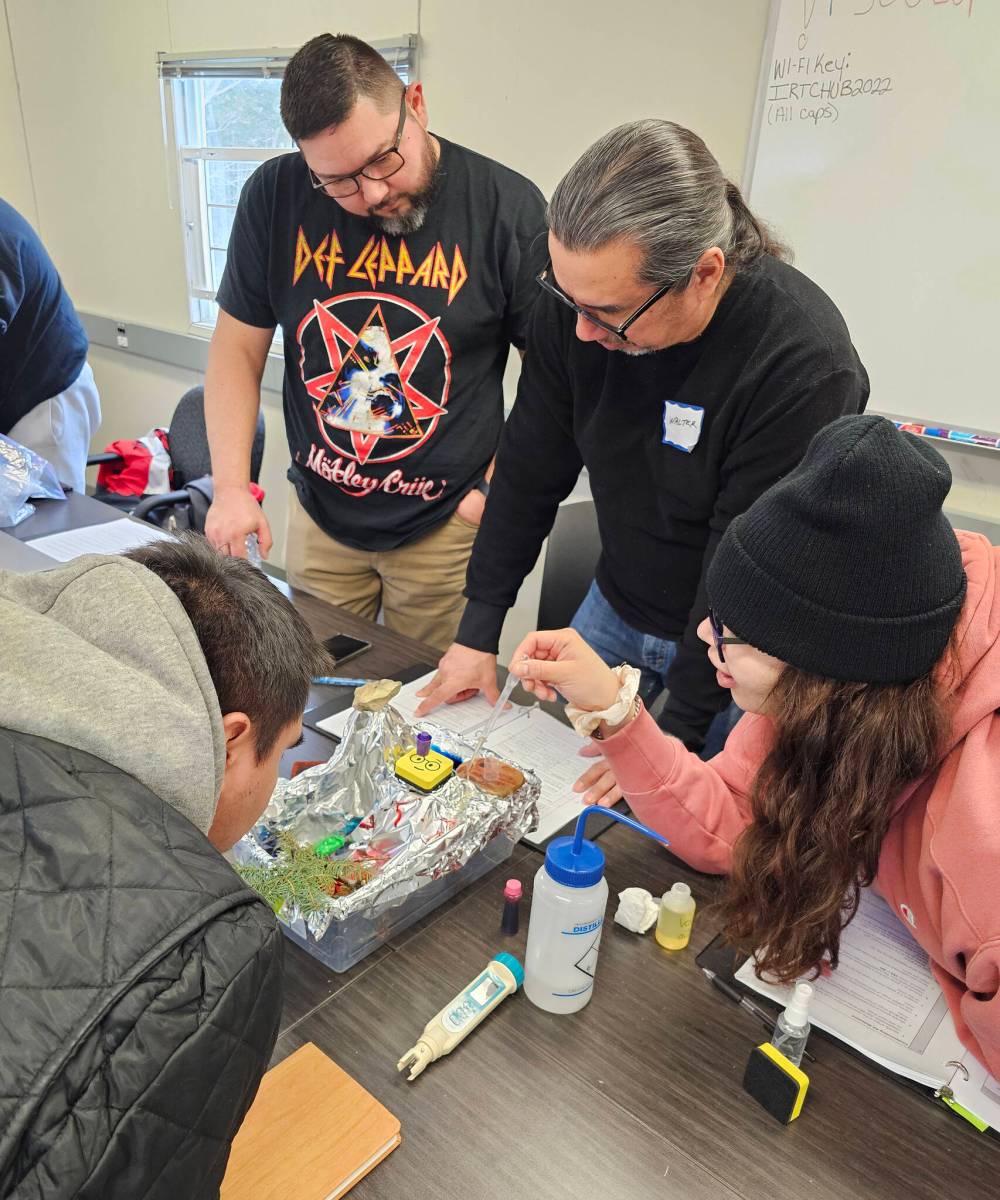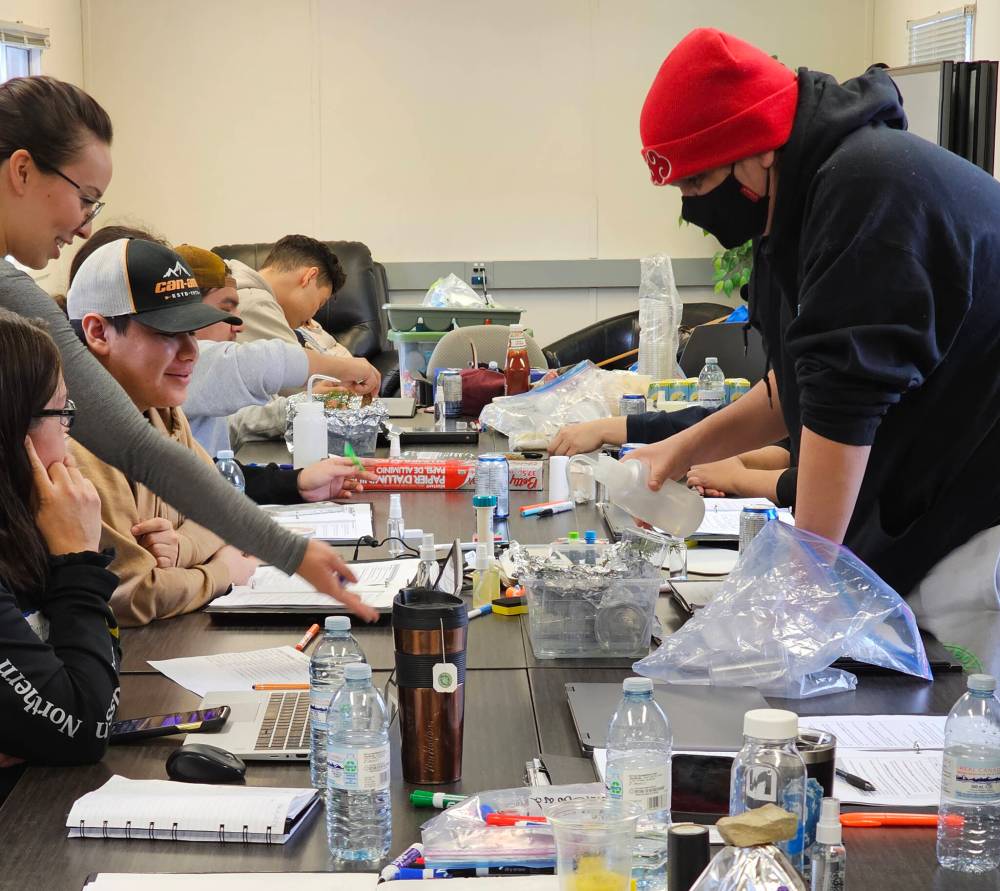Quality water (treatment) education
First Nations group secures Manitoba’s first 15-month internship program for plant workers
Advertisement
Read this article for free:
or
Already have an account? Log in here »
To continue reading, please subscribe:
Monthly Digital Subscription
$0 for the first 4 weeks*
- Enjoy unlimited reading on winnipegfreepress.com
- Read the E-Edition, our digital replica newspaper
- Access News Break, our award-winning app
- Play interactive puzzles
*No charge for 4 weeks then price increases to the regular rate of $19.00 plus GST every four weeks. Offer available to new and qualified returning subscribers only. Cancel any time.
Monthly Digital Subscription
$4.75/week*
- Enjoy unlimited reading on winnipegfreepress.com
- Read the E-Edition, our digital replica newspaper
- Access News Break, our award-winning app
- Play interactive puzzles
*Billed as $19 plus GST every four weeks. Cancel any time.
To continue reading, please subscribe:
Add Free Press access to your Brandon Sun subscription for only an additional
$1 for the first 4 weeks*
*Your next subscription payment will increase by $1.00 and you will be charged $16.99 plus GST for four weeks. After four weeks, your payment will increase to $23.99 plus GST every four weeks.
Read unlimited articles for free today:
or
Already have an account? Log in here »
Hey there, time traveller!
This article was published 14/03/2024 (639 days ago), so information in it may no longer be current.
Five years after the 2011 flooding at Lake St. Martin First Nation that forced its evacuation and subsequent redevelopment, a new $16-million wastewater treatment plant was built.
While there are trained personnel running the plant located some 220 kilometres northwest of Winnipeg, there has always been a concern about the availability of certified operators in case of retirement or job churn at similar rural facilities across the province.
Seetta Roccola, technical services manager with the Interlake Reserves Tribal Council (of which Lake St. Martin is a member), said the council had applied for funding for training programs in the past.

It finally got the green light from Indigenous Services Canada last year and last month launched a 15-month internship program delivered by Ontario non-profit Water First Education & Training Inc.
It marks the first group of interns Water First has worked with outside Ontario.
The organization, which was founded in 2009 to bring drinking water resources to rural schools in Uganda, began working with Indigenous communities in 2012. By 2016, it had dedicated itself exclusively to communities in Canada experiencing water challenges.
“This is a big deal for us. It’s something we’ve wanted to do for a long time,” Roccola said. “We don’t have back up for the trained staff who are on the job right now.”
It’s not just a problem for First Nations in Manitoba.
Brian Taylor, chairman of the Manitoba Water & Wastewater Association and public works superintendent for the City of Portage la Prairie, said the organization has been promoting such training for some time and has recently started to make certification exams available.
“We have the same issues in Portage and they probably have the same issues in Winnipeg. We all have it (finding trained workers),” he said.
“It is hard to get people with all the certifications at all the different levels. It’s even harder to get people in the northern communities.“
Water First delivers a 15-month program where interns study safety, watersheds, water treatment and distribution, water chemistry and sampling. They will visit all seven member communities of the tribal council and tour the Lake St. Martin water treatment plant.
The $1-million program is funded by ISC; interns are paid by their home communities through individual education and training funds.
“I’m very happy to be a part of the Water First internship,” said Walter Spence of Peguis First Nation. “Sharing ideas and supporting each other while making those ideas become reality will be a huge boost for our respective communities and their water treatment programs.”
Kendra Driscoll, Water First internship development manager, based in Sudbury, Ont., said one of the problems with maintaining the right number of skilled people to man facilities in every community is it’s not the type of career people hear about.
Even though there’s not really any post-secondary prerequisites, there are a number of exams that have to be passed to gain certification most communities require.

“It can be intimidating to get into the field if you don’t have a background in it,” she said. “We take anybody who has an interest or who wants to potentially become an operator. They are given the opportunity to learn as a group… and at the end of the 15-month paid internship, they are ready to start their career or continue their careers as operators.”
Of the 46 interns who have been through the program in Ontario, 80 per cent are either working in the field or returned to school for further education.
The Water First internship provides 1,800 hours of on-the-job experience in home community water and/or wastewater treatment plants, which is necessary to complete the certification process.
As part of the program, interns pursue certification as small drinking water and small wastewater operators, as well as Class 1 water treatment and wastewater treatment.
There’s also additional workshops in water quality analysis, introduction to environmental water sampling, introduction to mapping and Geographic Information Systems, as well as career readiness training.
Water First has grown dramatically over the past few years, almost doubling the amount of charitable donations it has received.
The organization takes its time deciding which communities it works with.
“There are a lot of careful conversations before we start a project,” Driscoll said. “It does take time, resources and commitment from the tribal councils and communities.
“You could have a community that could really benefit but it is not the right time, perhaps because there are other priorities. That has happened to us and we end up doing it later.”
martin.cash@freepress.mb.ca

